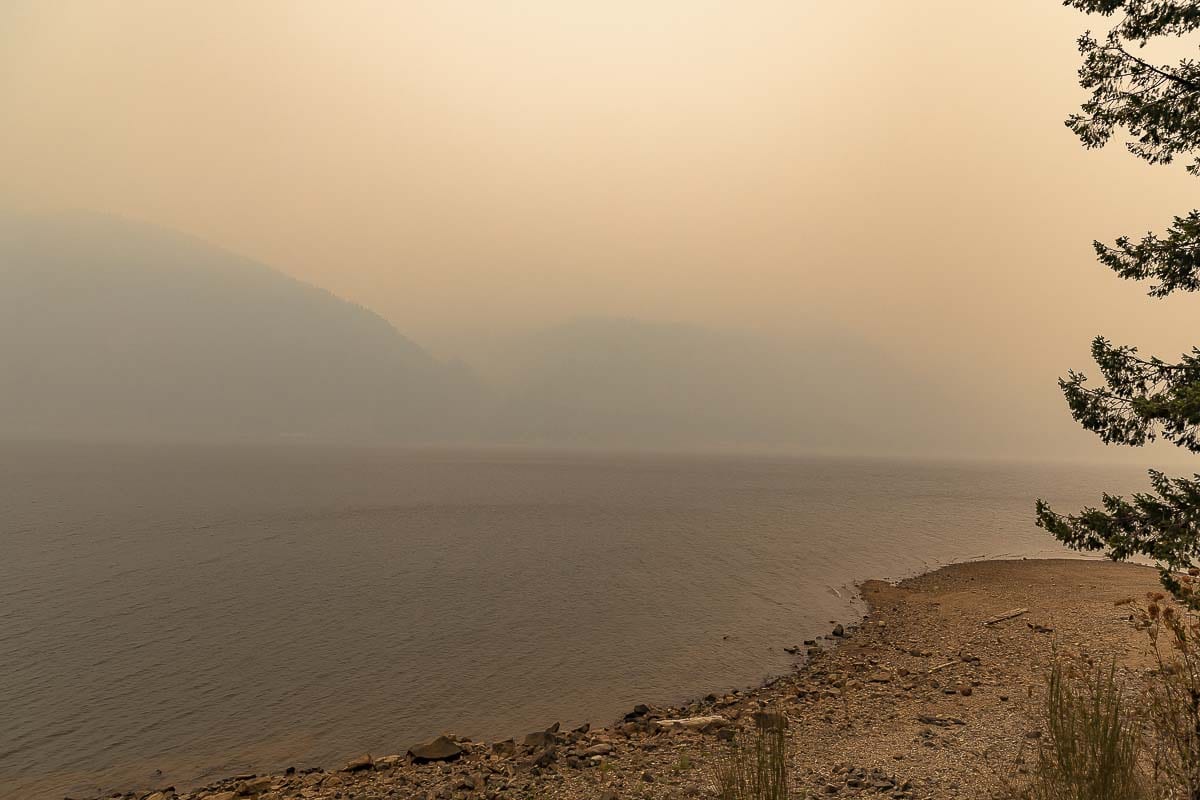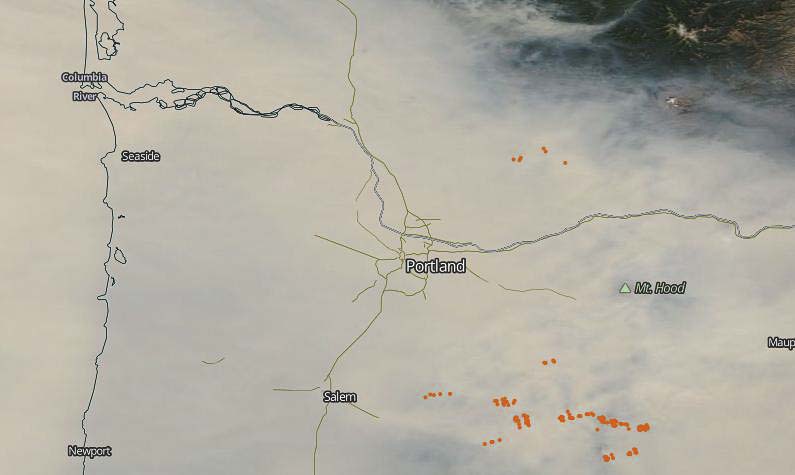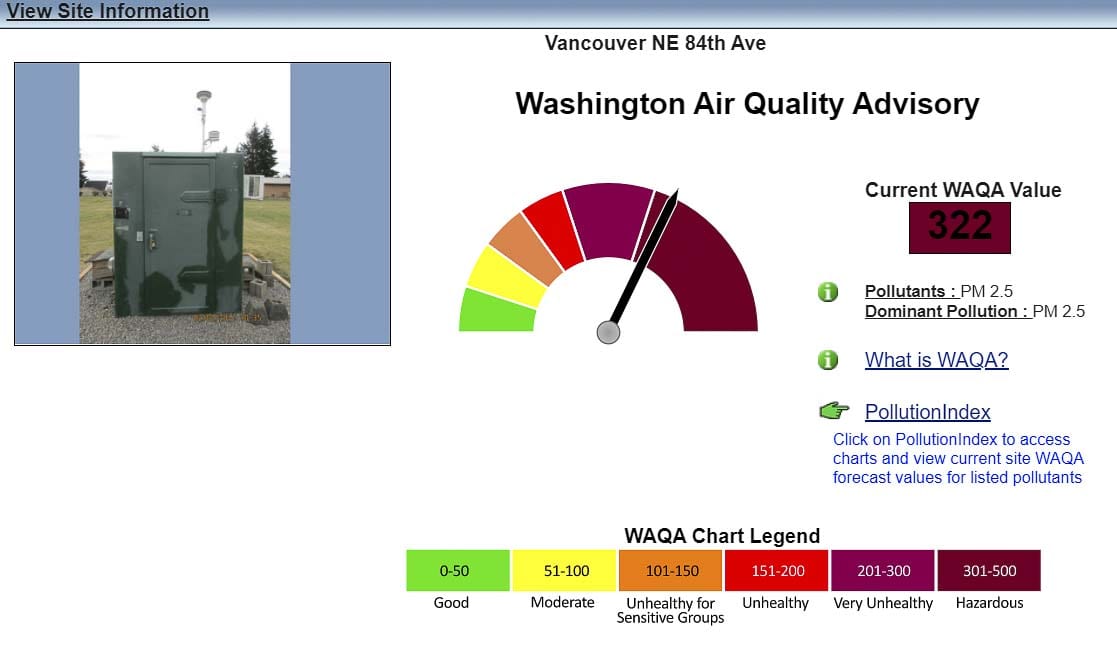An air pollution advisory for the area is in effect through noon on Monday
CLARK COUNTY — Even as the winds die down and the threat of explosive wildfire growth eases, people all over Clark County find themselves with a new environmental threat to worry about.

Dense smoke from fires all along the west coast which had drifted out over the Pacific Ocean has returned with a vengeance, has settled back over the area as winds shift and a thermal inversion pushes it down like a sepia-toned fog over much of the area.
The result is hazardous air conditions that are among the worst in the world, and will likely be slow to improve.
As of noon on Friday, an air quality station managed by the Southwest Washington Clean Air Agency showed particulate pollution levels at 318. Anything over 300 is considered “hazardous.”
Concerns over the air quality prompted Burgerville and a number of other area restaurants to close down. Waste Connections canceled trash and recycling pickups for Friday, with customers being told they can put twice their usual amount on the curb next week.

The Vancouver Farmers Market also decided to close for Saturday, and the Oregon Zoo said they were shutting down at least through Sunday.
The Southwest Washington Clean Air Agency issued an air pollution advisory through at least noon on Monday.
Clark County Public Health Director Dr. Alan Melnick says the conditions we’re seeing now can be hazardous for anyone, but especially those with conditions such as asthma, Chronic Obstructive Pulmonary Disorder (COPD), people with lung or heart disease, or anyone who has had a stroke.
In conditions like this, even healthy people should avoid strenuous activities, especially outdoors, and limit exposure as much as possible..
In normal times, Melnick says, they might be setting up a clean air shelter for people in those groups. But with the ongoing COVID-19 pandemic necessitating physical distancing, they’re urging people to remain indoors and take steps to keep the air inside their homes as clean as possible.
“One of the things you want to do is reduce any other combustion products in the house,” Melnick says.
That can include candles, food fryers, gas ovens or stoves, and especially cigarettes or even vaping products. Aerosol containers, such as hairspray, can also be a bad idea, since they put off ozone which can be an irritant to the lungs.

Melnick also recommends avoiding things like vacuuming, unless your vacuum cleaner has a HEPA filter. Otherwise you could be increasing the amount of lung-irritating dust in the air inside your home.
If you have a HEPA air filtration system, make sure it is well maintained and on at all times. Whole home air conditioners can also be set to recirculate air from inside the house, which should filter out at least some of the particulates in the air.
If neither of those are available, a furnace filter with a MERV rating of at least 11 can be taped to the back of a box fan, and used to pull air through and filter it.
If you must go out, Melnick warns, those cloth or disposable masks you’ve been using to slow the spread of COVID-19 won’t be of much use to protect you from the smoke.
Smoke particles are around 2.5 microns in diameter or smaller, and can go right through the cloth material.
“You would really have to wear a respirator, like an N95 fit-tested respirator, to get any protection at all,” Melnick says. “[Cloth masks] won’t make it worse, but it won’t help you.”
Conditions slow to improve
The National Weather Service in Portland says onshore flow will begin to develop over the next 24 hours, but so much smoke has gathered out over the Pacific Ocean that it could be late Sunday or even Monday before air quality begins to improve noticeably.
Until then, you’re urged to check air quality conditions before heading out, and limit trips until things improve.




